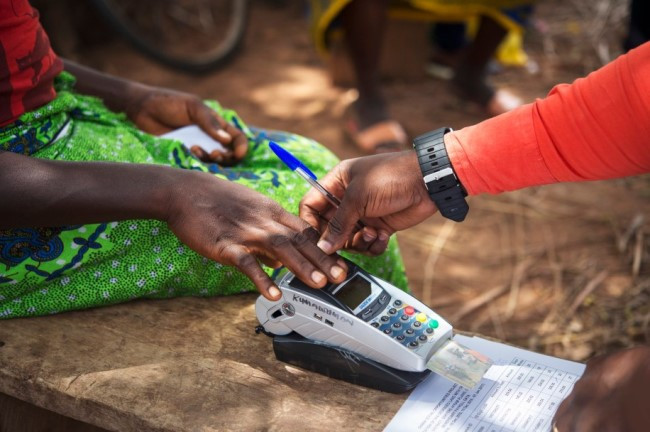Rural households particularly suffer from lack of formal financial services infrastructure. They face high transaction costs when they rely on informal financial service providers, direct costs such as transportation expenses to reach the nearest bank branch; as well as opportunity costs including the time spent on travelling or on waiting in queues before being served. In addition, most of them are exposed to high security risks by carrying cash.
Digital Finance has the potential to foster access to formal financial services for many individuals in emerging and developing countries. New digital banking business models are being developed and implemented worldwide, thereby widening its usage and improving the quality of financial services at a much lower cost and with greater convenience. The fast and wide spread of mobile phones, Automated Teller Machines (ATMs), Point-of-Sale (POS) terminals, and other devices make financial services much more accessible to previously excluded people.
GOPA AFC has a longstanding record of performance and trust with central banks, regulatory agencies, financial institutions, as well as various key stakeholders across financial, telecommunication, and ICT sectors to drive this change. Our work focuses on the access, use, and quality of digital financial services both on the supply and demand sides.
For instance, GOPA AFC provided technical assistance to the Mozambican Central Bank to harmonize existing mobile money/ e-money and agency banking regulations into a unified regulatory framework. GOPA AFC also assisted the Bank of Kigali in Rwanda to configure, customize, and implement the online knowledge management platform for the first project for SME lending process digitalization in East Africa.
In Ghana, GOPA AFC designed the centralised agency banking business model for all the Rural Community Banks. In addition, GOPA AFC supported the Ghana Interbank Payment and Settlement Systems Limited (GhIPSS) in rolling out the national biometric payment infrastructure in rural areas.
In Papua New Guinea, GOPA AFC supported the Centre for Excellence in Financial Inclusion in elaborating the country’s 2nd Financial Inclusion and Financial Literacy Strategy, including Digital Finance as a priority area. In Jordan, GOPA AFC focused on increasing the digital financial literacy and awareness on the benefits and risks of using digital financial services among the Syrian refugees and low-income Jordanians.
Read more about GOPA AFC's work in digital financial inclusion here:


